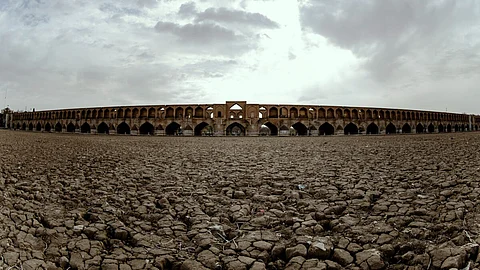
- Union Budget 2026
- Home
- NewsGram USA
- India
- न्यूजग्राम
- World
- Politics
- Entertainment
- Culture
- Lifestyle
- Economy
- Sports
- Sp. Coverage
- Misc.
- NewsGram Exclusive
- Jobs / Internships

As Iran faces one of the most complex environmental crises in West Asia, growing evidence suggests that its water shortage is not merely the result of drought or governmental mismanagement. At the heart of this unfolding catastrophe lies a more concealed factor: the direct involvement of military and security institutions, particularly in the widespread unauthorized drilling of groundwater wells.
Contrary to the public narrative, which often blames excessive water consumption on large industries, intensive farming, or climate change, official and academic reports reveal that a significant portion of illegal groundwater extraction is carried out by entities enjoying legal and regulatory immunity, most notably the Islamic Revolutionary Guard Corps (IRGC) and its affiliated companies.
The silence of oversight bodies toward these systemic violations has not only legitimized the behavior but has also exacerbated environmental collapse, led to widespread water resource depletion, and triggered ecological displacement across critical regions of the country.
Iran is among the countries with the highest rates of unsustainable groundwater extraction. According to Iran’s Geological Survey (2023), over 400 plains across the country are in a “critical” or “prohibited” state due to water stress.
Already in 2017, officials spoke about approximately 220,000 unauthorized wells nationwide. Several environmental activists interviewed claim that a significant percentage of these wells are drilled by the Islamic Revolutionary Guard Corps (IRGC), although this figure has not been independently verified by reliable sources. These wells are often dug without permits or environmental assessments, contributing significantly to groundwater depletion.
In provinces such as Isfahan, Yazd, Qom, and Semnan, dozens of villages have been abandoned because of drastic drops in groundwater levels.
Over the past decade, Khatam al-Anbiya Construction Headquarters, the IRGC’s economic arm, has become the largest contractor for dam building, water transfer, and industrial agriculture projects in Iran. [Global Voices/ VS]
Also Read:
